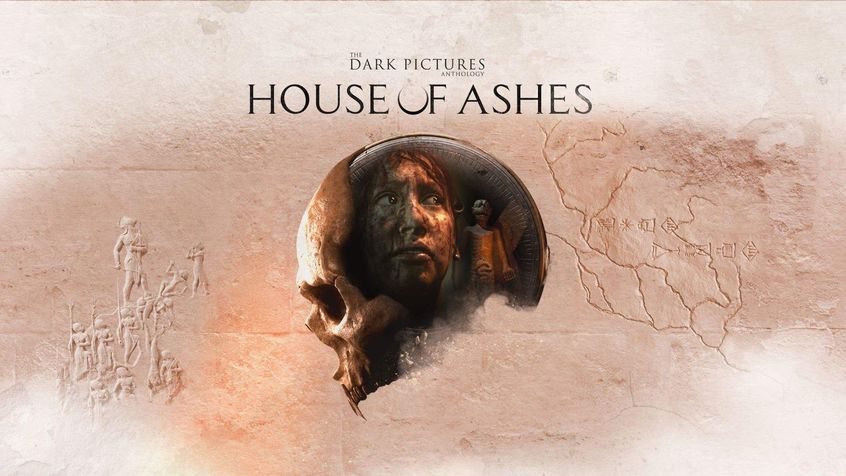Dark Pictures Anthology: House Of Ashes
I always find the breadth of narrative games interesting, be it in how the story is told mechanically, what story is told, or the perspective that the game asks the player to take. It’s part of why narrative games are such a perennial favourite of this series. At heart, I see myself as a storyteller, crafting narratives that in some way reflect what’s going on in my head. It’s also why these reviews are what they are. Anyone can ask ChatGPT to spit out the technical or plot beats of a game. I like to sit here and tell you what playing the game felt like, and what it made me think about along the way.
In the case of House of Ashes, I thought both about the story, and about the lack of confidence the devs seem to have in the story alone to be compelling, and what that says about how narrative games are viewed.
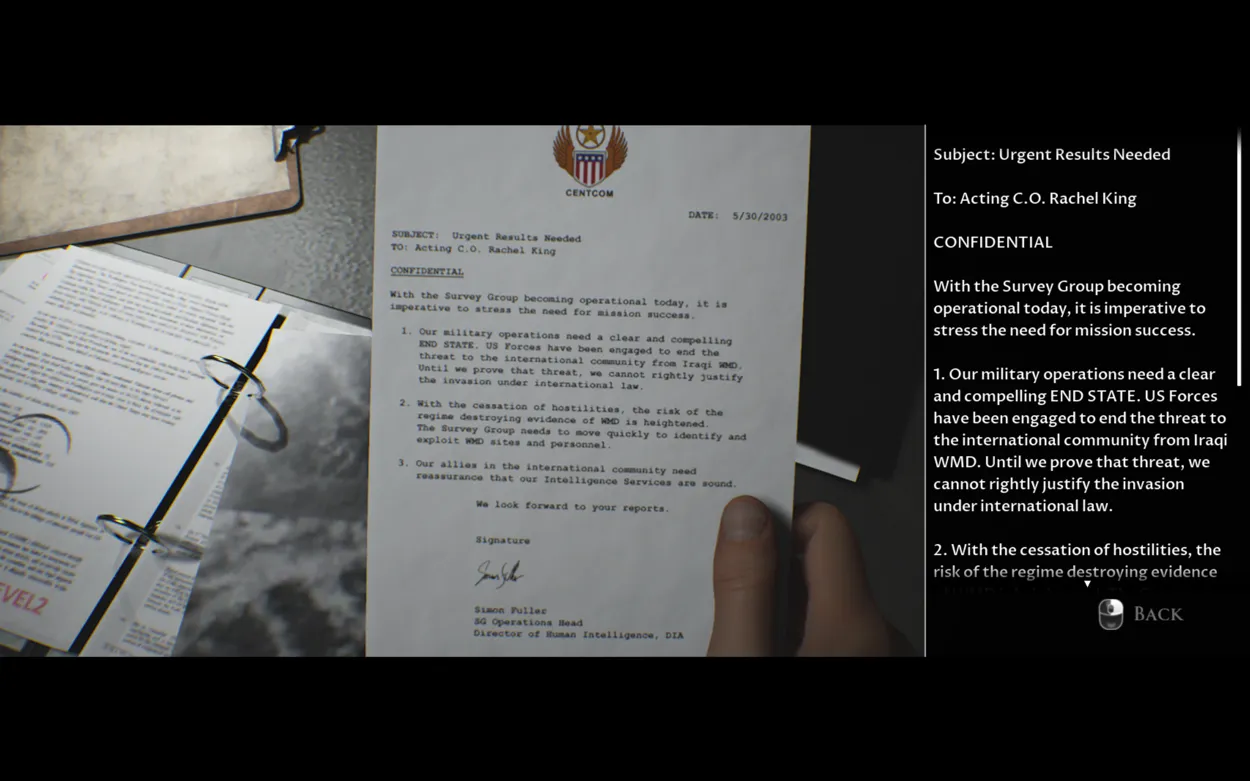 I
have some bad news about justifying the invasion of Iraq under international
law.
I
have some bad news about justifying the invasion of Iraq under international
law.
House of Ashes is the third game in the Dark Pictures Anthology. Much like the previous games in the series, House of Ashes follows a set of unlikeable (with one exception) protagonists through the plot of B-movie horror flick. In this case, the game follows a group of soldiers as they fall explore an ancient Sumerian temple buried beneath the Iraqi mountains, encountering otherworldly horrors and a fight for their survival.
As far as B-movie horror stories go, the Dark Pictures Anthology continues to excel. Though most of the protagonists are thoroughly dislikeable, it’s an expertly done dislikeable, crafting a setting where, while I care whether the characters die, I am not heartbroken if they do. The motivation to save them is less the motivation that they explicitly deserve to be saved, but rather the more general motivation that no one deserves to die. It’s a tough balance to strike, but House of Ashes somehow manages to strike it perfectly.
Similarly, the setting is exactly the right degree of corny, even referencing its own corniness throughout. The idea of vampires being buried in an ancient temple is not a new one, but it’s presented with such sincerity that the player can’t help but get excited at the prospect of fighting them. Watching a group of soldiers be thrust into the wrong genre and have to deal with the consequences is legitimately satisfying, and I had an excellent time just engaging with the setting.
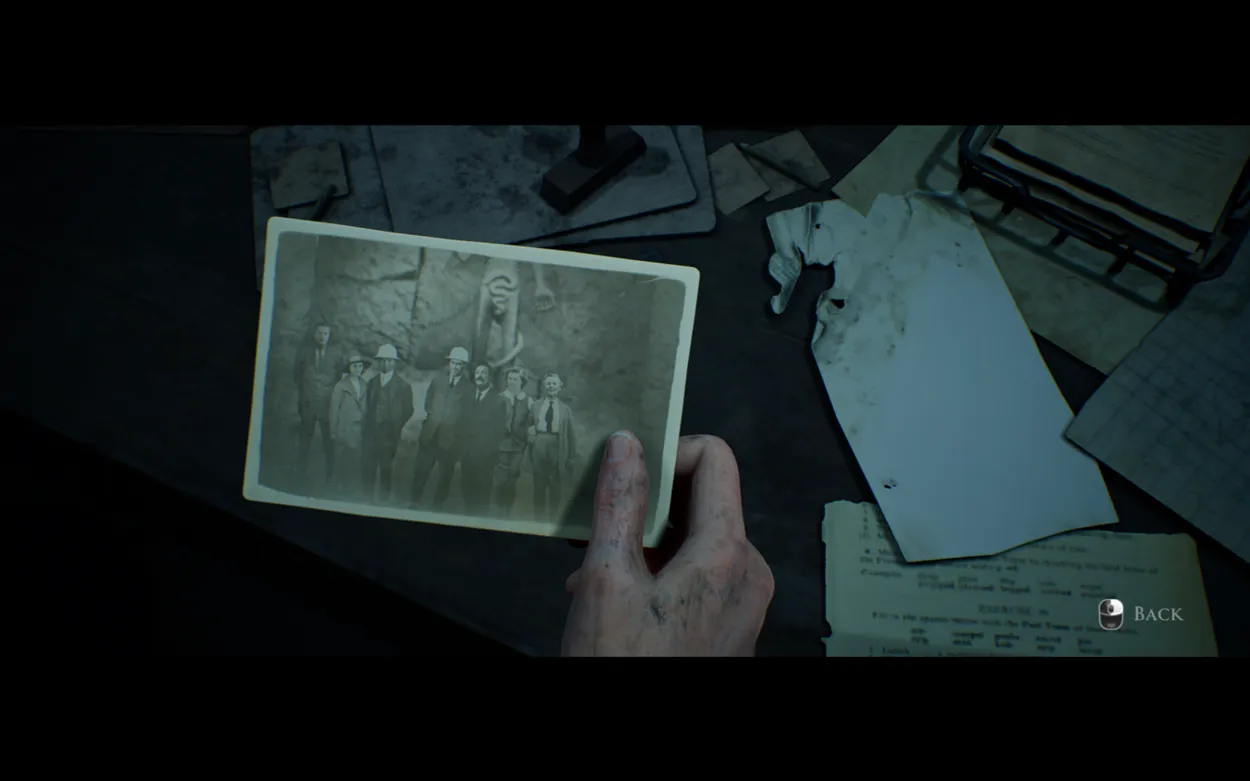 I
see only happy things in the future for this group.
I
see only happy things in the future for this group.
However, it’s mechanically that House of Ashes - and the Dark Pictures Anthology more generally - tends to lose me. As excellently as it implements the idea that player choice matters, and that outcomes are the inevitable consequences of past decisions, these outcomes are also disproportionately impacted by quicktime events. While these are better implemented than the events in Man of Medan - if nothing else, I no longer wander off from the event every time I press the wrong button - it is still immensely frustrating to watch a carefully crafted story go off the rails because of a missed button press.
As an example, House of Ashes has one unquestionably sympathetic character who consistently acts as the adult in the room, and who was the only character I was absolutely committed to getting through to the end of the game. I brought him nearly to the end of the game, through every choice and quicktime event, only to lose him when I couldn’t move my finger across the touchpad fast enough just before the end. I felt the kind of sour heartbreak that the game didn’t want me to feel, feeling as though this character’s fate was not the consequence of my decisions, but of my inability to move as quickly as I needed to on a touchpad.
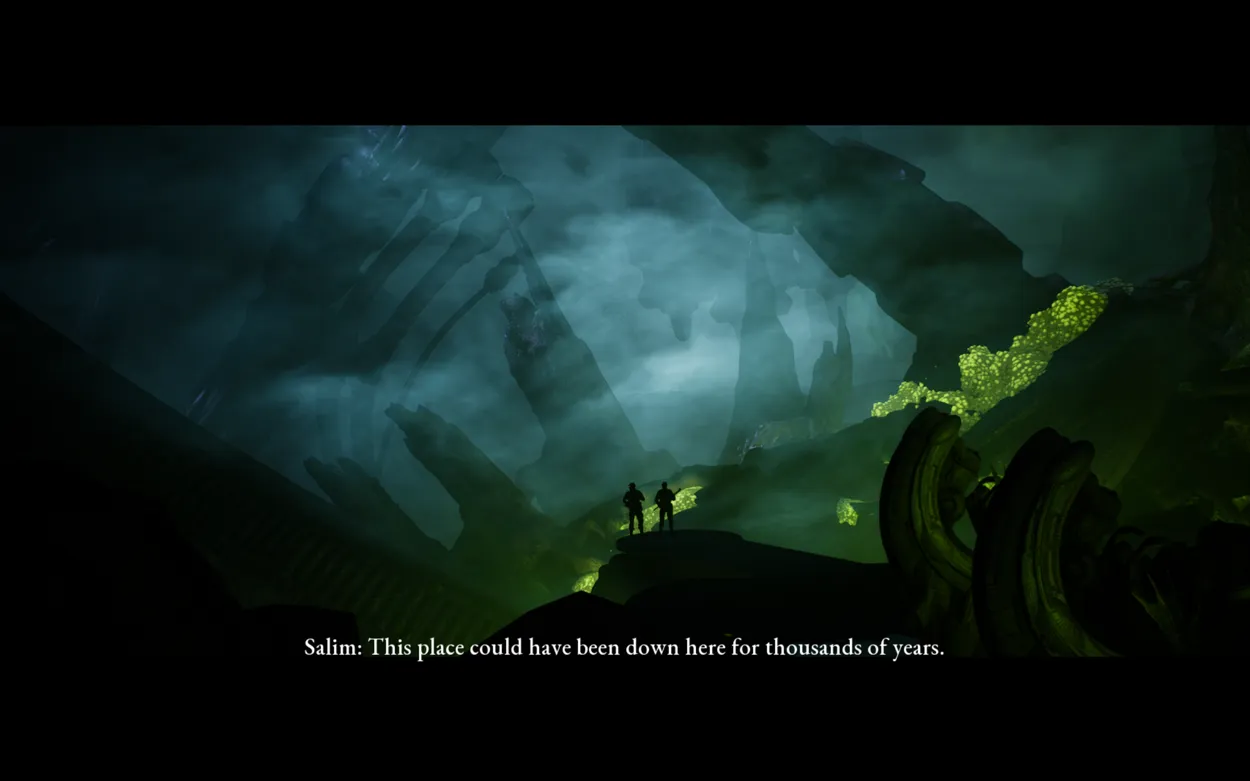 I
am here for the 11th hour ancient aliens twist.
I
am here for the 11th hour ancient aliens twist.
It’s this inclusion of quicktime events that makes the Dark Pictures Anthology series feel both completely unique, and feel a bit hollow. It wants very badly to pitch the player on the idea that the story and the narrative are at the heart of the game, when ultimately, all choices eventually boil down to a quicktime event, with that being the determiner of any given character’s fate. This sends the message that there is a lack of faith in the idea that a story and choices are enough to keep players hooked and interested, and a lack of faith in the story as a whole. That lack of faith is disappointing - there is a lot to love in House of Ashes, and there is every reason to have faith that it can keep players interested.
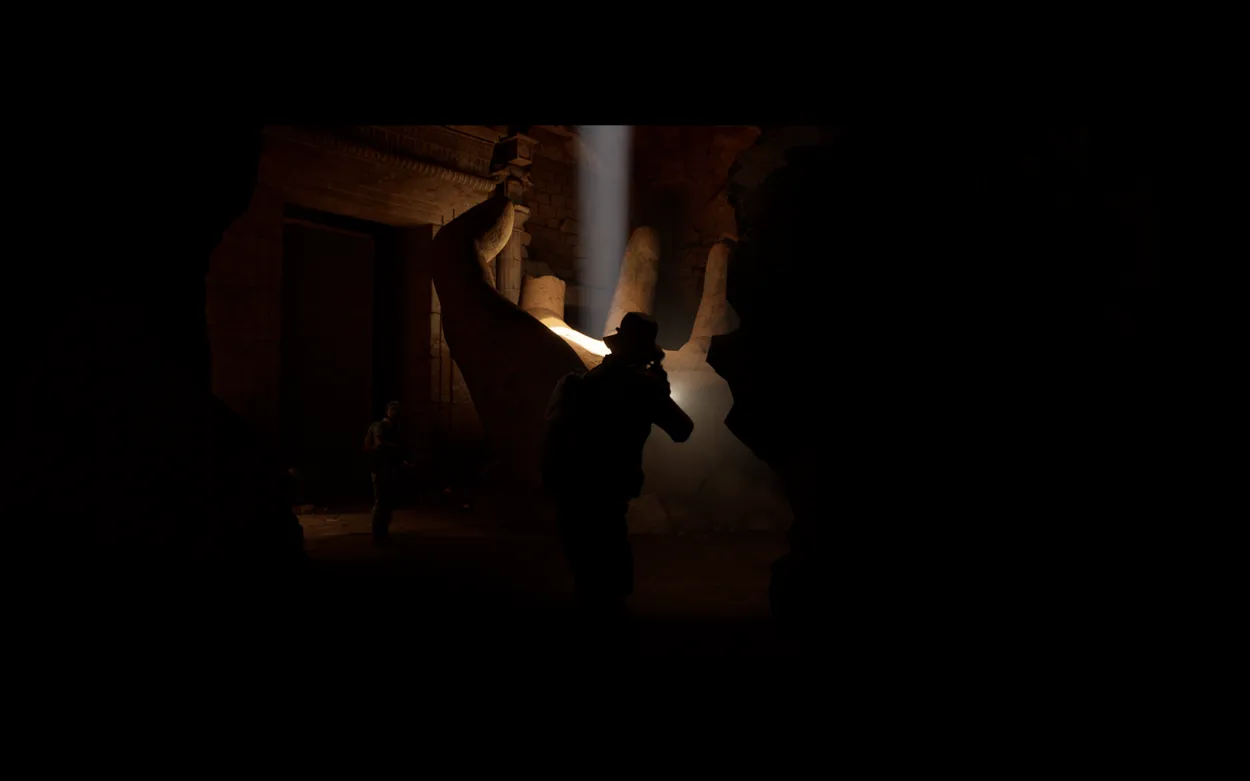 Also,
most of the game looks like this.
Also,
most of the game looks like this.
None of this detracts from the fun to be had with House of Ashes, though, especially when played with a friend. While I played the game on my own, I did so with my partner beside me, with both of us cheering and commentating throughout. This is the true B-movie experience, of sitting with a friend, not taking anything too seriously, and letting the silliness just carry you along. It’s an experience better had without the quicktime punctuations, but even this iteration of it is still a good time.
Developer: Supermassive Games
Genre: Interactive Fiction, Horror
Year: 2021
Country: United Kingdom
Language: English
Play Time: 5-6 Hours
Youtube: https://youtu.be/QULL41EBzIs
